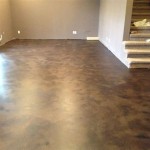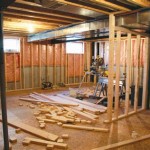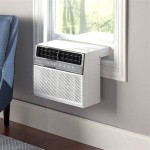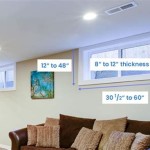Choosing the Optimal Flooring for Basements on Concrete
Basements, often situated below ground level, present unique challenges when it comes to flooring selection. Concrete, the typical subfloor in basements, is prone to moisture absorption and temperature fluctuations, making careful consideration of flooring materials paramount. The ideal basement flooring option should resist moisture, provide insulation, enhance comfort, and contribute to overall aesthetics. This article explores several suitable flooring types for basements on concrete, detailing their advantages, disadvantages, and installation requirements.
Addressing the Moisture Challenge in Basements
Moisture is the primary concern when selecting flooring for a basement with a concrete subfloor. Concrete is a porous material and can draw moisture from the ground, leading to mold growth, mildew, and structural damage to certain flooring types. Therefore, selecting a moisture-resistant or waterproof option is critical. Understanding the different levels of moisture resistance available and the specific conditions of the basement is essential for making the right choice.
A simple test can help determine the moisture levels within the concrete slab. Secure a square of plastic sheeting (approximately 18" x 18") to the concrete floor using duct tape. Seal all edges completely. Leave the plastic in place for 24-48 hours. After this period, check the underside of the plastic for condensation. If condensation is present, it indicates that moisture is migrating through the concrete slab. Similarly, inspect the concrete floor itself after removing the plastic. A darkened or damp appearance also suggests moisture issues. This test provides a preliminary assessment, and more comprehensive moisture testing may be necessary in severe cases.
Proper mitigation of moisture is crucial regardless of the flooring chosen. This might involve applying a concrete sealer, installing a vapor barrier, or improving ventilation within the basement.
Evaluating Different Flooring Options
Several flooring materials are suitable for installation over concrete in basements, each possessing distinct characteristics. These options include, but are not limited to, engineered wood, luxury vinyl plank (LVP), tile, epoxy coatings, and specialized basement subflooring systems.
Engineered Wood Flooring: While solid hardwood is generally not recommended for basements due to its susceptibility to moisture, engineered wood offers a more dimensionally stable alternative. Engineered wood consists of a thin veneer of hardwood bonded to multiple layers of plywood or fiberboard. This construction makes it less prone to warping or expansion and contraction compared to solid hardwood. However, even engineered wood flooring should be installed over a vapor barrier to protect it from moisture. Furthermore, it’s essential to select a high-quality engineered wood product with a durable finish.
Luxury Vinyl Plank (LVP) Flooring: LVP flooring is a popular choice for basements due to its waterproof nature, durability, and aesthetic versatility. LVP is manufactured from synthetic materials and is resistant to moisture, stains, and scratches. It is available in a wide range of styles, mimicking the appearance of hardwood, tile, and stone. LVP is relatively easy to install, often featuring a click-lock system that requires minimal adhesive. Its resilience and low maintenance requirements make it a practical choice for basement environments.
Tile Flooring: Tile, particularly ceramic and porcelain, is an excellent option for basements due to its inherent water resistance and durability. Tile is impervious to moisture, preventing mold and mildew growth. It is also resistant to scratches and stains. However, tile can be cold underfoot, especially in basements. Radiant heating systems can be installed beneath tile flooring to provide warmth. The installation of tile requires careful preparation of the concrete subfloor to ensure a level and stable surface. Grout lines should be properly sealed to prevent water penetration.
Epoxy Coatings: Epoxy coatings provide a seamless, durable, and waterproof surface for basement floors. Epoxy is a thermosetting resin that is applied in liquid form and hardens to create a tough, protective layer. Epoxy coatings are resistant to chemicals, stains, and abrasions, making them suitable for high-traffic areas. They are also available in a variety of colors and finishes. Proper surface preparation is crucial for epoxy application. The concrete floor must be clean, dry, and free of any contaminants. Acid etching or grinding may be necessary to create a porous surface that allows the epoxy to bond properly.
Specialized Basement Subflooring Systems: Several specialized subflooring systems are designed specifically for basements on concrete. These systems typically consist of interlocking tiles or panels made from waterproof materials such as plastic or rubber. They create an air gap between the concrete subfloor and the finished flooring, allowing moisture to evaporate and preventing mold growth. These subflooring systems can also provide insulation and cushioning, enhancing comfort. They are typically easy to install and can be used with a variety of finished flooring options.
Key Considerations for Installation
Proper installation is critical to the performance and longevity of any flooring in a basement environment. Improper installation can lead to moisture problems, structural damage, and costly repairs.
Subfloor Preparation: Preparing the concrete subfloor is a crucial step in the installation process. The subfloor must be clean, dry, level, and free of cracks or damage. Any cracks or imperfections should be repaired before installing the flooring. The concrete floor may need to be leveled using self-leveling compound to create a smooth and even surface. Removing any existing adhesives or coatings is essential for proper adhesion of the new flooring.
Moisture Mitigation: As previously mentioned, moisture mitigation is paramount. If the moisture test indicates high levels of moisture, a vapor barrier should be installed over the concrete subfloor. A vapor barrier is a thin layer of plastic or other waterproof material that prevents moisture from migrating through the concrete. The vapor barrier should be properly sealed at the seams to ensure complete protection.
Acclimation: Before installing any flooring material, it should be acclimated to the basement environment for a period of time. Acclimation allows the flooring to adjust to the temperature and humidity levels in the basement, reducing the risk of expansion or contraction after installation. Follow the manufacturer's recommendations for acclimation time, which can vary depending on the flooring material and the environmental conditions.
Professional Installation: While some flooring options can be installed by DIY enthusiasts, professional installation is often recommended, particularly for complex installations or when dealing with significant moisture issues. Professional installers have the experience and expertise to properly prepare the subfloor, mitigate moisture, and install the flooring according to manufacturer's specifications. This ensures a durable and long-lasting installation.
Underlayment: An underlayment can provide additional benefits such as cushioning, sound insulation, and moisture resistance. Select an underlayment that is specifically designed for use with the chosen flooring material and for installation over concrete. Some flooring options, such as LVP, may have an integrated underlayment.
Choosing the right flooring for a basement on concrete requires careful consideration of moisture levels, durability, aesthetics, and installation requirements. While engineered wood, luxury vinyl plank, tile, epoxy coatings, and specialized subflooring systems each offer viable solutions, proper preparation and installation are essential for long-term performance. Evaluating the specific conditions of the basement and consulting with flooring professionals can help ensure the selection of the optimal flooring for a comfortable, durable, and aesthetically pleasing basement space.

What Is The Best Flooring To Put On A Concrete Basement Floor

What Is The Best Flooring For A Concrete Floor Basement Illinado Llc

6 Inspiring Ideas For Basement Flooring In Portland

How To Choose The Right Floor For Your Basement Gc Flooring Pros

What Are The Best Flooring For Basement In Homes

Best Basement Flooring Options Cork Floating Floors Icork Floor

The Best Flooring Options For Your Basement From Forest Llc

Selecting The Best Basement Flooring Next Day Floors

Best Flooring For Basement Renovations

What Is The Best Flooring For Basements Get Pros And Cons
Related Posts







